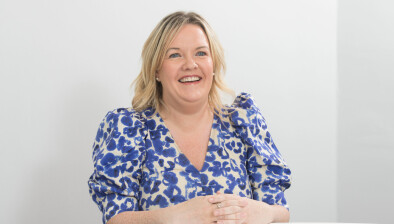William Cullen: Money worries?

William Cullen
William Cullen, senior manager of specialist firm Dunedin Advisory, discusses the options available for Scottish residents who are struggling financially.
With the increasing cost of living - many facing hiked up utility bills running into hundreds of pounds per month and increases in many other essential costs - does this mean more households will struggle to meet all their ongoing commitments?
Throughout the pandemic, fewer people have sought advice from money advisors and insolvency practitioners. Many have relied on government support provided during the pandemic including:
- Companies and institutions not chasing for arrears or defaults as they would have previously
- More time to pay or opportunity to amend payment terms
- Additional time to apply for a formal break (moratorium) stopping any action that can be taken to ingather debts from 6 weeks to 6 months
- Very little court action raised as recovery actions stopped
Statistics show there are far less bankruptcies and trust deeds in Scotland in the last two years than historic numbers.
Has the debt problem disappeared or are there many people with significant debt payment arrears which compounded with the substantial increase in cost of living leading to more people requiring support? What is the support available?
R3, the trade association for the UK’s insolvency, restructuring, advisory and turnaround professionals recently issued a comprehensive guide setting out the options. They include 4 informal and 3 formal solutions:
Informal Solutions
- Budgeting – working out personal income and outgoings
- Negotiation with creditors (those you owe money to) to change terms
- Consolidating loans – merging various debts into one to reduce the overall payment made over a longer period
- Debt management plans – entering a plan where regular payments are made with amounts paid to creditors from the plan
Formal solutions covered by law and regulation
- DAS (Debt Arrangement Scheme) – Scottish Government backed debt management scheme to pay debts through a programme over a longer period with interest and charges not being added
- Protected Trust Deed – a voluntary deed taking into account a person’s assets and surplus income (over a 48-month period) allowing for a part payment to creditors as full settlement
- Bankruptcy (known as sequestration) – a solution where a person’s assets are realised and debts are written off at the end (with creditors receiving payment only if there are sufficient funds realised to pay them)
It is important for all people with debt problems to get the correct advice and know about all the options. The guide sets out key information and shows there are many considerations to think about before arriving at the correct solution. Getting advice from a qualified expert is invaluable to help navigate all that is required and understand what the best option is.
It is also great news that the Financial Conduct Authority are making inroads to stop rogue advisors leading people to the wrong solution. It is so important that the correct advice is given – debt is a serious matter and can be very costly and harmful if not managed properly.







